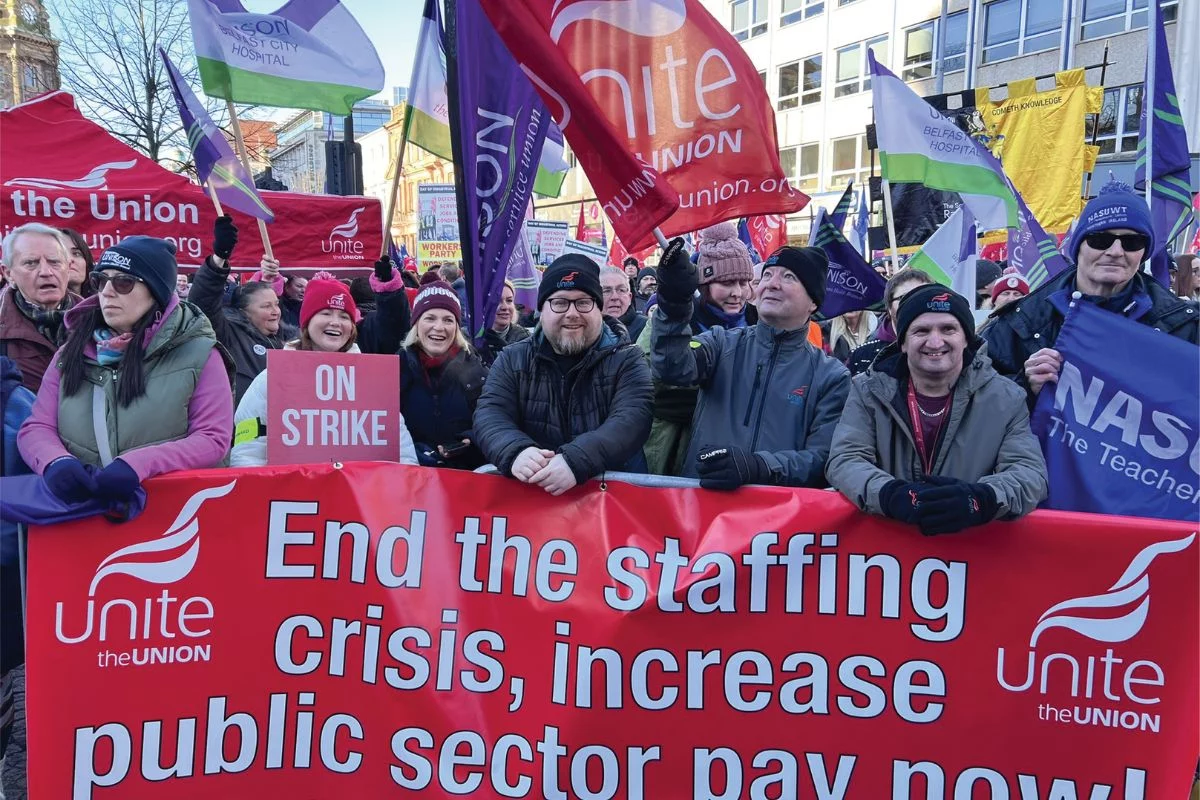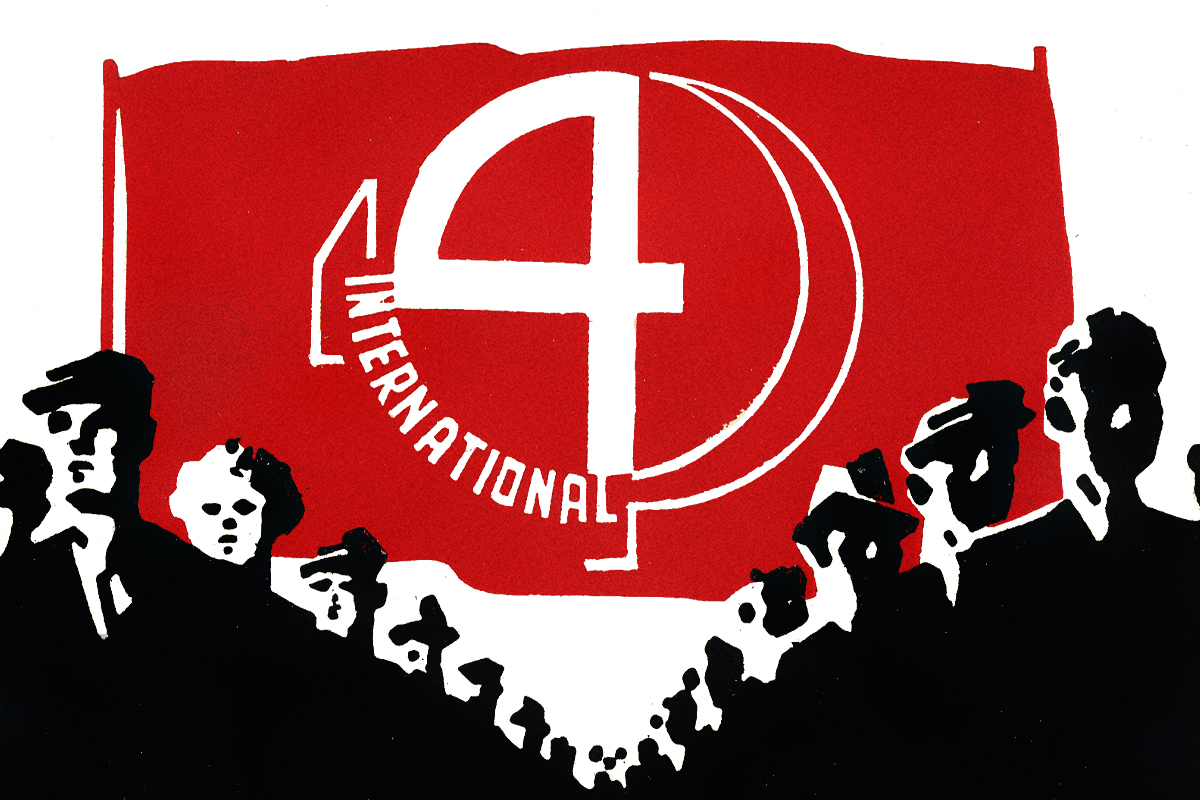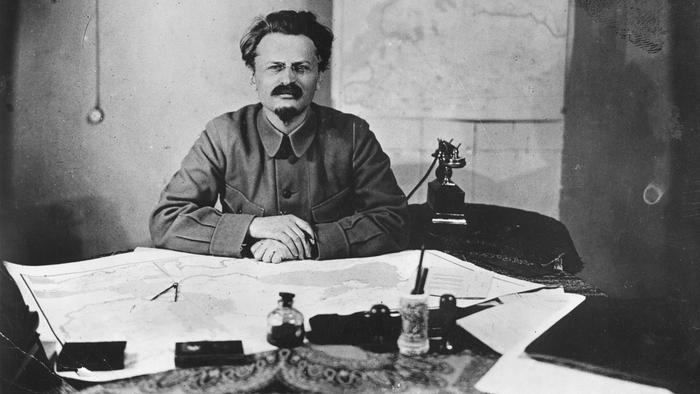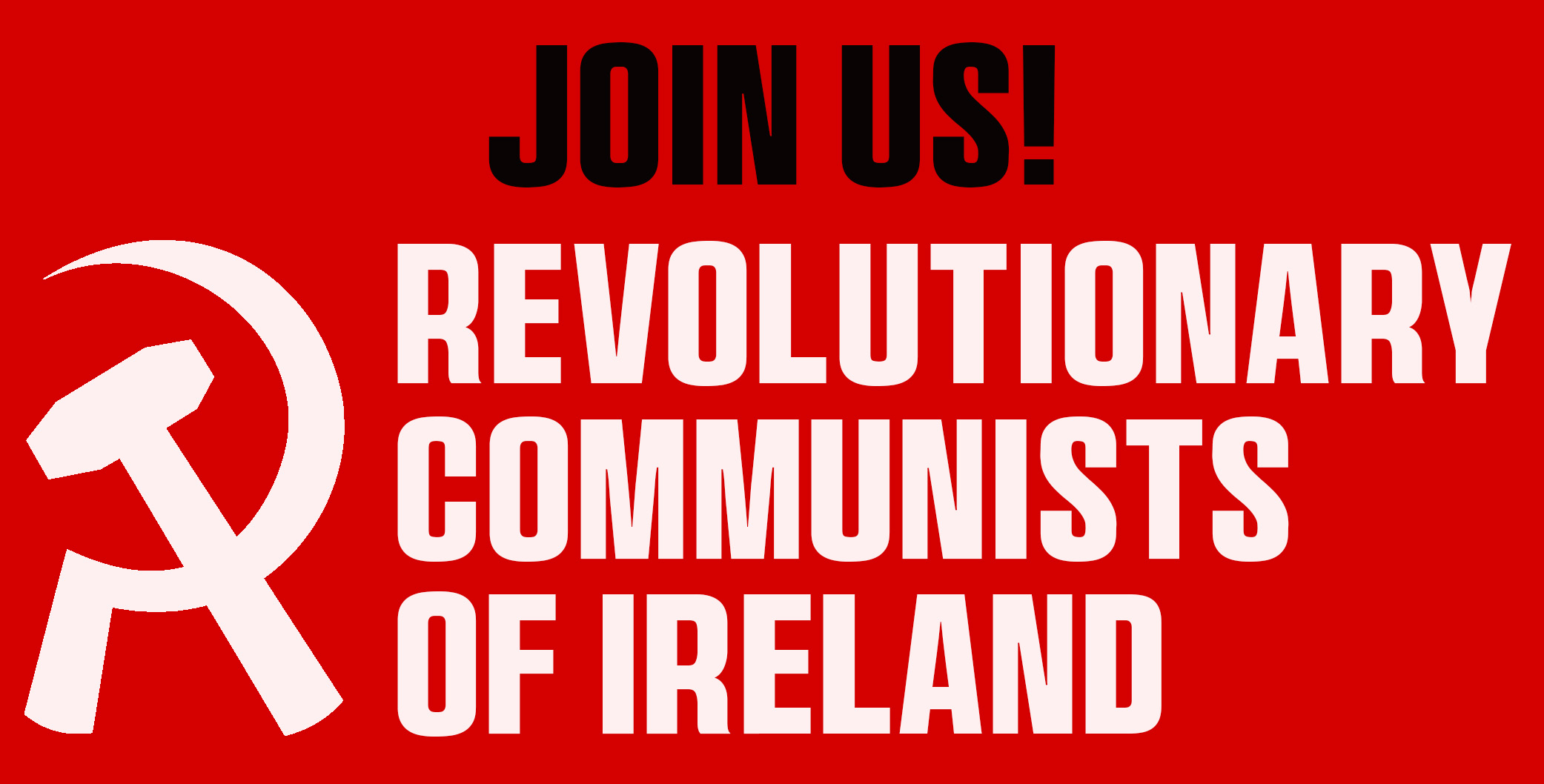Last Thursday, on 18 January, 170,000 workers from across the public sector, represented by 16 trade unions, took to the streets of the North of Ireland en masse to voice their anger and frustration at the decaying standards of living that are being felt by workers, and even by the middle classes.
This was one of the biggest strikes in the history of the state – a de facto public sector general strike. In looking for a historical precedent in terms of magnitude, one would have to go back to the Ulster Workers’ Council strike of 1974.
That, however, was a sectarian strike. This is different. For the first time in a generation, workers from all backgrounds came together in solidarity to demonstrate against the burden that has been hoisted on the shoulders of the working class.
State of disrepair
It has been nearly two years since the North of Ireland has had a government.
In this time, politicians at Stormont have continued drawing their fat salaries. Over £9 million has been paid out, working out at just over £100,000 per MLA.
Citizens in the North, meanwhile, have seen welfare further decimated as the tight-fisted Tories in Westminster fail to provide the statelet with sufficient funding.
Conditions have become unbearable. The cost-of-living crisis has seen commodity prices on goods such as food, fuel, bills, and rent skyrocket, all while wages have stagnated. Workers can barely pay for basic necessities, never mind luxuries, whilst major corporations continue to profit more than ever.
According to the latest statistics, 18 percent of the population were found to be living in poverty. This includes 100,000 children, 190,000 working adults, and 30,000 pensioners – this in a state that has just shy of two million residents.
Northern Ireland is one of the poorest regions of western Europe. And due to the negligence of the government, it has fallen into a state of disrepair, suffering from insufficient housing, crumbling infrastructure, devastating pollution in its largest body of water, Lough Neagh, a failing health service, and degradation of the educational system.
Workers taken hostage
Ever since Brexit and the collapse of Stormont in 2016, we’ve seen a political farce play out at Stormont and Westminster, with constant crises over ‘power sharing’ and Brexit.
At all stages, the working class has been relegated to mere spectators, occasionally being marshalled out for a sectarian headcount, which is called an ‘election’ here. But no more.
The latest twist in the politicians’ games has united workers across the sectarian divide. And with one single voice they have declared: “enough!”
In his efforts to blackmail the DUP back into Stormont, Tory Secretary of State for Northern Ireland Chris Heaton-Harris has refused to release cash for a public sector pay rise until the deadlock is cleared.
So whilst the British ruling class can afford to aid and abet a genocide in Palestine, and bypass Parliament to bomb Yemen, they plead poverty to workers struggling to pay the bills here, and complain that their hands are tied by ‘rules’ which won’t allow money for a payrise to be released until the DUP walks up the steps of Stormont.
This is stinking hypocrisy. In order to give some semblance that the North of Ireland is not a failed state, they need Stormont up and running. For this, they need the DUP to drop their intransigence to sharing power with Sinn Féin. And as leverage over the DUP, the Tories have taken public sector workers hostage!
No longer bystanders
Ever since its inception, the project of the North has been a failure. A sectarian state from the start, in which working-class Catholics have been treated as second-class citizens, it is run by inept, self-seeking politicians who have failed miserably to bring about any worthwhile change for the people.
To maintain their dwindling voter base, Unionist politicians in particular must spew divisive rhetoric, pit worker against worker on grounds of religion or nationality, and draw attention to ‘issues’ that divert the attention of the masses they claim to represent, who rightly regard them with contempt.
For the DUP, the ‘Irish Sea Border’ has become a very useful diversion. This imaginary border is alleged by Unionist politicians to represent some ‘cultural’ separation of Northern Ireland from Britain. In fact, while the border has an economic significance for business, how it operates is remote from the interests of the working class, whose conditions will be pushed downward regardless.
As long as the working class are reduced to mere bystanders in politics, issues like this will continue to dominate. But the people of the North are becoming apathetic towards this same old rhetoric from their political representatives. The working class are becoming politically conscious, and are coming to recognise the need for systemic change.
Workers’ power
In this powerful strike, workers from the Falls Road to East Belfast have had a taste of their common interests and their collective strength.
So long as either Stormont or Westminster calls the shots, the real power will lie with the capitalists. But workers have now seen for themselves that they represent a far mightier power in society.
Only when the workers rule will we put an end to the misery, poverty, and sectarian strife of life under capitalism.
The impact of this strike will not be forgotten. As a journalist for the Belfast Telegraph put it:
“We’re likely to see a wave of strikes which – if forced to their ultimate conclusion – will either force direct rule or the DUP back into Stormont.
“But even if Stormont returns, this won’t evaporate. The power which public sector workers and union bosses have demonstrated won’t be quickly forgotten. We may have entered a new era of strike politics.”
The task now is to build upon this; to extend the action; to claw back everything that has been taken from us – and by doing so foster class consciousness and an independent, revolutionary voice for the working class.




